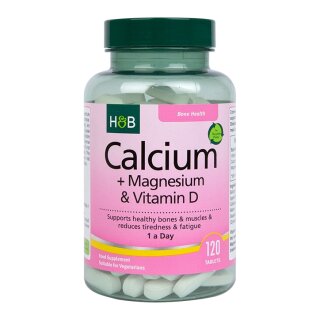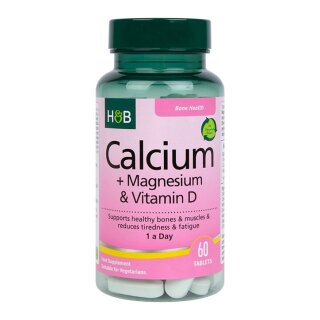Benefits
1. It can fight depression
It plays a critical role in brain function and mood. Low magnesium levels are associated with an increased risk of depression. Increased stress, in addition, can reduce magnesium levels, so supplementation can help reduce depression symptoms.
2. It enhances exercise performance
It is involved in the movement of sugar from the blood to the muscles and is also one of the most important electrolytes, with a major role in fluid balance and therefore muscle recovery after exercise. Magnesium supplements can be particularly beneficial in cases of intense exercise. (Do you experience frequent muscle cramps? It is one of the most commonly reported symptoms of magnesium deficiency!)
3. It supports the maintenance of healthy blood sugar levels
Studies suggest that about 48% of people with type II diabetes have low blood magnesium levels, which can damage the body's ability to effectively regulate blood sugar levels. In addition, research shows that people who consume more magnesium have a lower risk of type II diabetes.
4. It promotes heart health
Magnesium supplements can help reduce levels of high blood pressure, which is a risk factor for heart disease.
5. It has anti-inflammatory properties
Low magnesium intake is associated with increased levels of inflammation, which plays a key role in aging and chronic diseases.
6. It may help prevent migraine attacks
Migraines are painful and often cause nausea, vomiting and sensitivity to light and noise.
7. It may improve PMS symptoms
Premenstrual syndrome (PMS) is one of the most common conditions in women of reproductive age. It often causes symptoms such as fluid retention, abdominal cramps, fatigue and irritability.
8. It promotes bone health
It is vital for maintaining bone health and protecting against bone loss. In fact, 50-60% of the body's magnesium is found in the bones.
9. It can support better sleep
Magnesium supplements are often used as part of effective treatment for insomnia. This is because magnesium regulates several neurotransmitters involved in sleep.
10. It can help reduce anxiety symptoms
Known as "the metal of calmness," magnesium can help to treat anxiety, especially in cases of deficiency.
Which foods are rich in magnesium?
- Green, leafy vegetables, such as spinach
- Nuts, such as almonds and cashews
- Pumpkin seeds & Chia seeds
- Beans, peas and soybeans
- Whole grains
- Bananas
- Avocados
What are the side effects of taking too much magnesium?
- Magnesium supplements in high dosage can cause nausea and diarrhea. It often cause softening of the stool.
- Magnesium supplements may interact with certain medications, including diuretics, heart medications, and antibiotics.
- People with diabetes, intestinal or kidney disease should not take magnesium before talking to their healthcare provider.
Scientific References
Farsinejad-Marj M, Saneei P, Esmaillzadeh A.(2016) Dietary magnesium intake, bone mineral density and risk of fracture: a systematic review and meta-analysis. Osteoporos Int. Apr;27(4):1389-1399.
Kirkland AE, Sarlo GL, Holton KF. (2018) The Role of Magnesium in Neurological Disorders. Nutrients. Jun 6;10(6).
FDA (2022) Announces Qualified Health Claim for Magnesium and Reduced Risk of High Blood Pressure
Dai Q, Zhu X, Manson JE, Song Y, Li X, Franke AA, Costello RB, Rosanoff A, Nian H, Fan L, Murff H. (2018) Magnesium status and supplementation influence vitamin D status and metabolism: results from a randomized trial. The American journal of clinical nutrition. Dec 1;108(6):1249-58.
Sakaguchi Y. The emerging role of magnesium in CKD. Clinical and Experimental Nephrology. 2022 May;26(5):379-84.
Cazzola R, Della Porta M, Manoni M, Iotti S, Pinotti L, Maier JA (2020)Going to the roots of reduced magnesium dietary intake: A tradeoff between climate changes and sources. Heliyon. Nov1;6(11).
Boyle NB, Lawton C, Dye L. (2017) The Effects of Magnesium Supplementation on Subjective Anxiety and Stress-A Systematic Review. Nutrients. Apr 26;9(5):429.


















